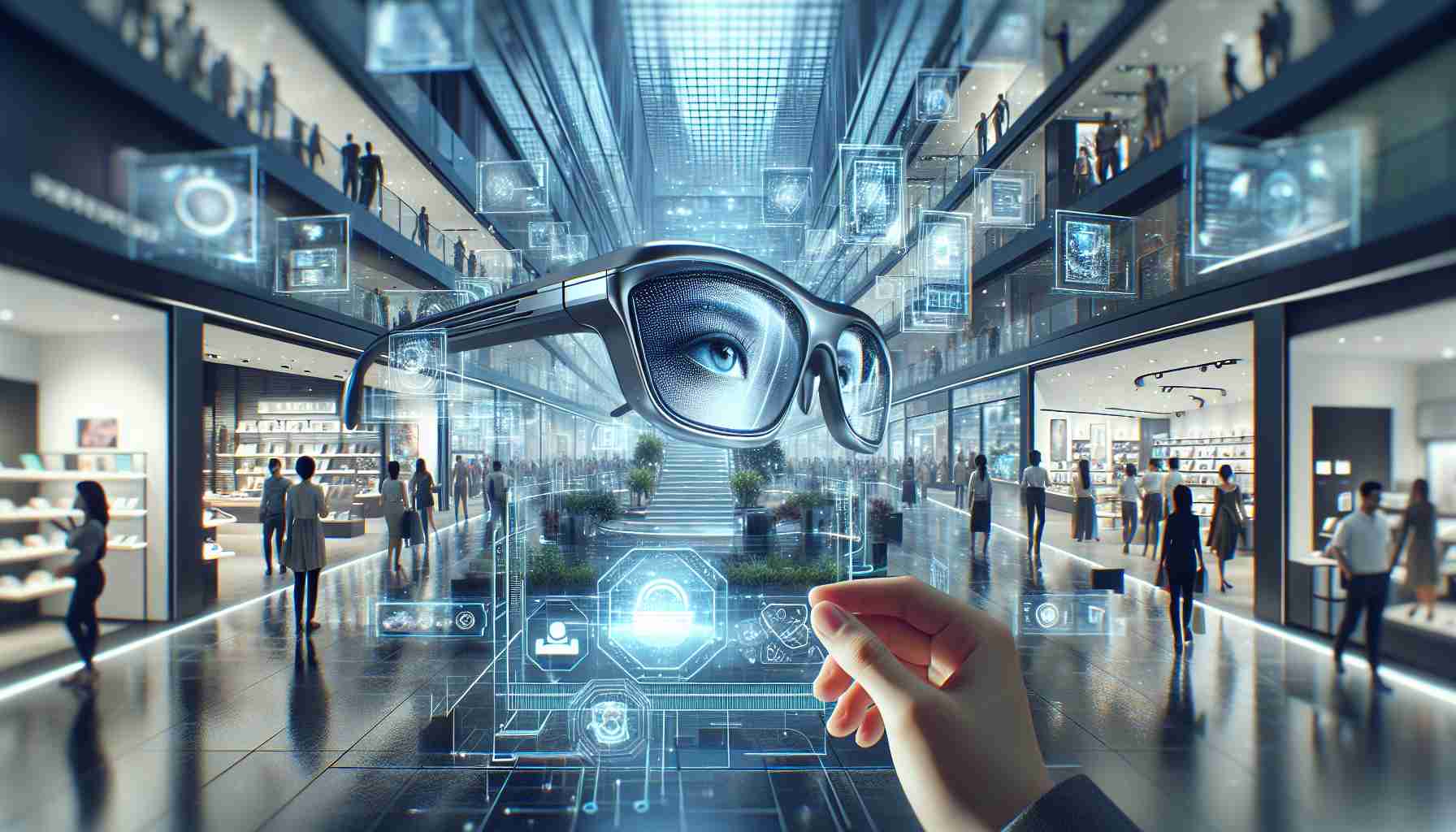Meta and Snap are on the verge of launching innovative smart glasses embedded with artificial intelligence, potentially revolutionizing the shopping landscape both online and in stores. Reports suggest that Meta is ready to introduce these advanced eyewear technologies, while Snap is also gearing up for its release, underscoring a strategic shift toward embracing AI in everyday wearable tech. Additionally, Meta is exploring a significant investment in EssilorLuxottica, the company behind Ray-Ban, signaling a deeper commitment to this sector.
The introduction of AI glasses could radically transform consumer shopping experiences. Industry specialists predict that these devices will facilitate immersive online shopping adventures, streamline in-store price comparisons, and seamlessly integrate digital catalogs into the user’s field of view. As a consequence, traditional retailers may face both opportunities and challenges as the boundaries between digital and physical shopping environments increasingly overlap.
Experts are optimistic yet cautious about the implications for retail. They believe that smart glasses could foster innovative advertising strategies and enhance personalized shopping, though privacy concerns regarding consumer data cannot be overlooked.
Despite the excitement, some analysts warn that widespread adoption of this technology may still take years. They emphasize that although the potential for engendering significant change is promising, it is imperative that these technological advancements enhance the shopping experience rather than replace the essential tactile elements that consumers cherish.
The Future of Shopping: AI-Enhanced Eyewear Revolutionizes Retail
As major tech players like Meta and Snap prepare to launch AI-powered smart glasses, the retail industry stands on the brink of a major transformation. However, amidst the excitement and anticipation, several key aspects remain crucial to understanding the real impact of these innovations on the shopping experience.
What are AI-enhanced eyewear technologies capable of?
AI-enhanced eyewear will likely offer a plethora of functionalities. These glasses can leverage augmented reality (AR) to overlay digital information directly onto the physical environment. For instance, a user could see product reviews, price comparisons, and product videos projected within their line of sight while shopping. Furthermore, advanced AI algorithms will analyze user preferences in real-time, tailoring recommendations based on individual tastes and previous purchases.
Key Challenges and Controversies
However, the integration of AI in shopping eyewear is not without its challenges. One major concern is the substantial investment required for companies to develop these technologies and the infrastructure necessary to support them. The cost to consumers could also be prohibitive, limiting accessibility to a broader market. Additionally, there are ongoing debates regarding the ethical implications of collecting and using consumer data for personalized marketing purposes, raising questions about transparency and consent.
Security risks associated with AI-enhanced devices are also paramount. With sophisticated data collection capabilities, there is potential for breaches that can compromise personal information. Retailers and manufacturers will need to establish robust security measures to protect consumer data effectively.
Advantages of AI-Enhanced Eyewear
The advantages of using such technology are significant. Enhanced convenience can lead to increased customer engagement, as shopping becomes more interactive and tailored to individual needs. This technology could increase sales conversion rates, with retailers able to provide individualized promotions or discounts at the point of decision-making. It also holds the potential to bridge the gap between e-commerce and brick-and-mortar stores, providing a hybrid shopping experience that could attract a wide range of consumers.
Disadvantages of AI-Enhanced Eyewear
Conversely, the introduction of AI eyewear could undermine the traditional retail experience that emphasizes tactile interaction with products. Consumers often value the ability to touch and try on items before making a purchase decision, which smart glasses cannot replicate. Furthermore, there is uncertainty surrounding the longevity and durability of such technology, considering that consumers may be hesitant to invest in devices that could become obsolete quickly.
Looking Toward the Future
As discussions unfold regarding the future of shopping, it raises pertinent questions about how these technologies will reshape consumer behavior. Will consumers fully embrace a digitally enhanced shopping journey, or will they resist for the sake of preserving traditional shopping values?
To stay informed about the impending changes and ongoing developments in AI-enhanced retail, interested readers can check out further resources at Forbes and Wired.
In conclusion, while AI-enhanced eyewear holds incredible promise for transforming the retail landscape, navigating the associated challenges will be essential to ensuring a positive impact on both consumers and retailers alike.

















